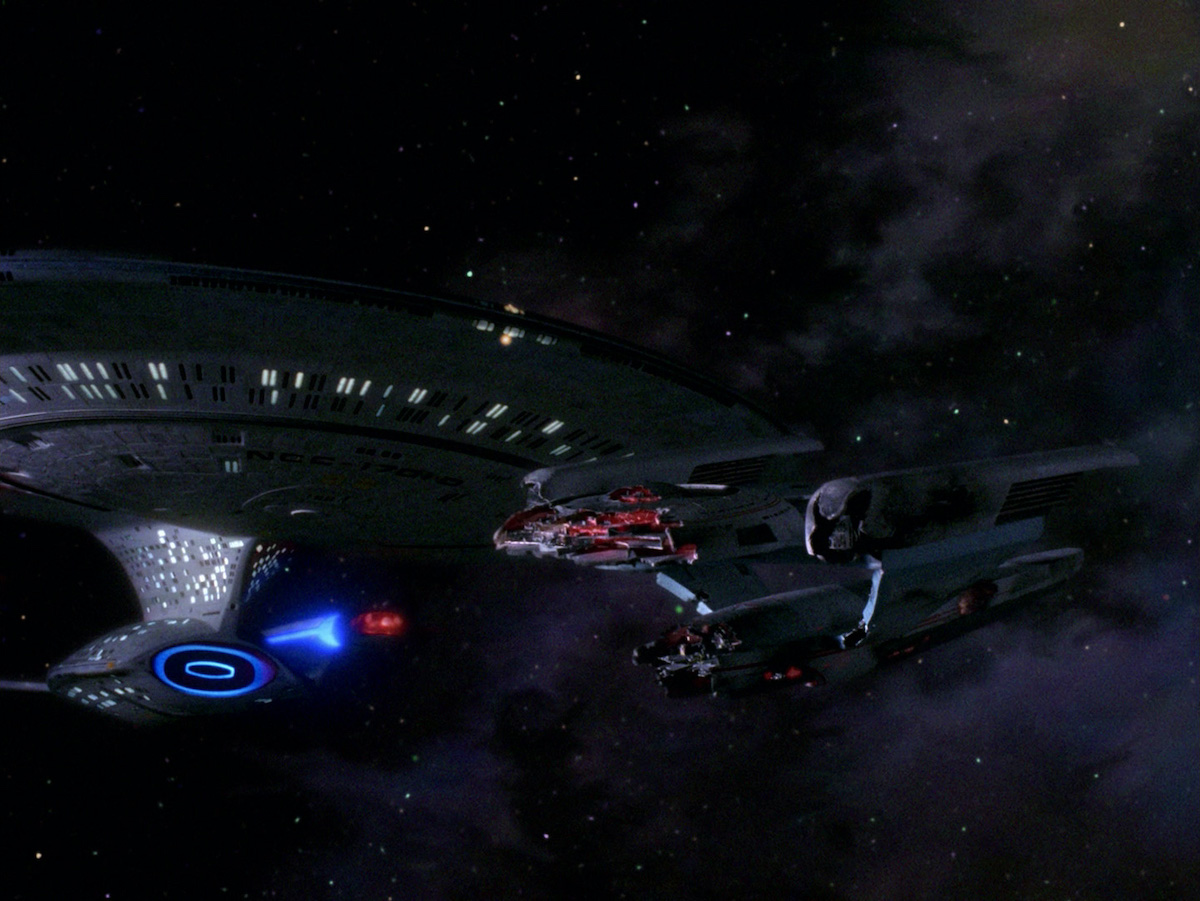“I would gladly risk feeling bad at times if it also meant I could taste my desert.”
And speaking of episodes built around kids (“Disaster” and “New Ground” down, “Imaginary Friend” to come), the unofficial running theme of Season Five continues with “Hero Worship,” where Data gets his own pubescent sidekick. This time, it’s a young boy who’s the sole survivor of a Starfleet ship that’s been ripped in half by a dark matter nebula. Once rescued, Timothy begins to emulate the android in order to keep from processing his feelings of survivor guilt and post-traumatic pain. It’s another episode that’s somewhat about the relationship between Data and his fans – if “In Theory” (directed, like “Hero Worship,” by Patrick Stewart) was a disconcerting look at the sexualisation of the android (or, by association, Spock) by women, this one’s a cuddlier glimpse at Data as role model for insecure young people. It’s Data as power fantasy: superior strength, mega intelligence, and none of those pesky “feelings” that tend to get adolescents down.
There’s something to be said for the notion of a person articulating difficult emotional crises through his identification with an external story/roleplay avatar. I can recognize that sort of impulse whenever my psyche connects something bad that’s happening in the real world with a movie or character I find appealing. Although “Hero Worship” isn’t much better than “New Ground,” unfortunately (though it is better), its heart is in the right place.
The issue is simply the basic mechanics of a plot like this: it’s only going to be as good as the kid, and Joshua Harris, who plays Timothy, is decent without ever really sparking in a way that would make his plight, or his imitation of Data, particularly noteworthy. As for Brent Spiner, he can do this shit in his sleep at this point, which is becoming a big problem. It’s been at least a full season (“Data’s Day”?) since he found more than a beat or two per episode to really interrogate as a character point; like Worf, the writers are running out of interesting collisions between his nature and his interest in humanity. The emotion chip looms larger and larger by the week.
And as with “New Ground” last week, the science fiction B-story – about how Timothy’s ship was destroyed in the first place – is paint-by-numbers. (Although it does have a fairly neat solution, a variation on the Chinese finger puzzle trick from “The Last Outpost” or “Booby Trap,” where the more energy the Enterprise puts into trying to escape, the harder the nebula fights back.) More “beige storytelling,” as I called it in “Unification,” as Next Gen loses its cleverness and sharpness a little bit more, week by week.

Blogging The Next Generation runs every Tuesday as I work my way through the episodes of Star Trek: The Next Generation on blu-ray. Season Five is in stores now.
